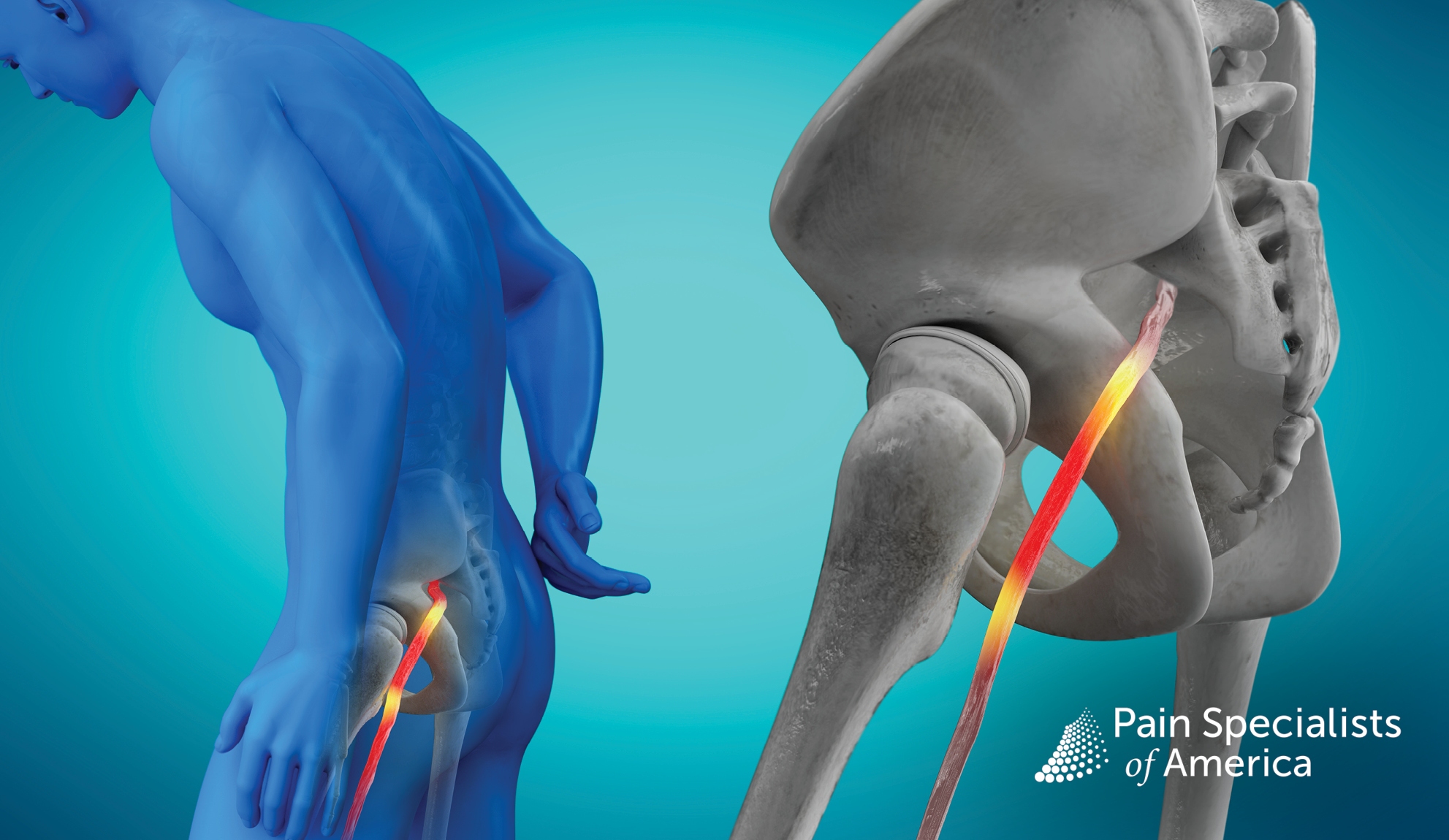
A creeping pain beginning in your lumbar or buttock area and running down the backs of your legs could mean problems with your sciatic nerve
With an estimated 40 percent of individuals experiencing lumbar radiculopathy at some point in their lives, it’s likely that you or someone you know has experienced or is experiencing this debilitating issue. Although familiar, many people still don’t fully understand what causes lumbar radiculopathy, how to identify it and the best ways to reduce its impact on our daily lives.
What is lumbar radiculopathy or sciatica and how do I know if I have it?
Lumbar radiculopathy, sometimes referred to as sciatica, is the irritation or inflammation of the sciatic nerve, which originates from the lower lumbar areas of our backs and branch out to the buttocks and backs of our legs. The sciatic nerve plays a vital role in controlling muscles and sensations in the lower body and is the longest and widest nerve in the human body.
Lumbar radiculopathy commonly occurs in people between the ages of 30 and 50 years. It is most often associated with a shooting or radiating sensation of pain beginning in the lower back and traveling down one leg or both. This is a crucial differentiator between sciatica and other kinds of pack pain, which often do not affect the legs. Often, patients with sciatica will describe the pain as dull, aching or even burning, with some also experiencing tingling and weakness.
Even if you are experiencing these symptoms, a doctor’s assessment is needed to diagnose the condition properly. Your doctor will typically evaluate your medical history and conduct a physical exam and may even request additional tests like x-rays, an MRI or a nerve conduction study to diagnose lumbar radiculopathy effectively.
What treatments are available?
Given proper rest, lumbar radiculopathy symptoms typically dissipate in a few days or weeks without the need for medical intervention. For those with persistent pain, there are several ways to relieve this and promote the healing process. They include:
What are the causes?
In most cases, lumbar radiculopathy is caused by:
lumbar radiculopathy or sciatica and Winter Weather
With Texas recently experiencing a blast of unprecedented winter weather, an increasing number of individuals may now be experiencing lumbar radiculopathy for the first time or dealing with worsening sciatic pain. It is commonly believed that lumbar radiculopathy is compounded by cold and although this may seem like an old wive’s tale, there’s evidence that this may be the case.
Cold weather and everyday activities required while living in cold environments can dramatically impact pain – including pain caused by sciatica. Reasons pain could increase during cold snaps include:
As discussed, rest and typical household pain remedies can effectively manage minor onset lumbar radiculopathy; however, for many medical interventions may be required. If you are experiencing debilitating sciatic pain, our pain management experts are available for patient consultations.